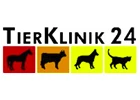- Quick navigation
- Home
- Open menu
- Page content
- Customer service
- Search
- Footer
* No advertising material
Doctors in Espace Mittelland (Region)General internal medicine in Espace Mittelland (Region)Restaurant in Espace Mittelland (Region)Transport in Espace Mittelland (Region)International moving in Espace Mittelland (Region)Undertakers in Espace Mittelland (Region)Vet in Espace Mittelland (Region)Movers in Espace Mittelland (Region)Audit firm in Espace Mittelland (Region)Funeral home in Espace Mittelland (Region)Funerals in Espace Mittelland (Region)Clearance services in Espace Mittelland (Region)Practice in Espace Mittelland (Region)Tax advice in Espace Mittelland (Region)Hotel in Espace Mittelland (Region)
International in Région lémanique (Region)International in GenevaInternational in BernInternational in German Switzerland (Region)International in Nordwestschweiz (Region)International in Route des MorillonsInternational in Around Lake Geneva / Lake Léman (Region)International in Zentralschweiz (Region)International in Waadt (Region)International in Rampe du Pont-RougeInternational in Petit-LancyInternational in ChâtelaineInternational in Chemin de BalexertInternational in Basel
Filter 1944 results
Sort by
General filters
International in Espace Mittelland (Region)
: 1944 Entries* No advertising material
Related searches:
Doctors in Espace Mittelland (Region)General internal medicine in Espace Mittelland (Region)Restaurant in Espace Mittelland (Region)Transport in Espace Mittelland (Region)International moving in Espace Mittelland (Region)Undertakers in Espace Mittelland (Region)Vet in Espace Mittelland (Region)Movers in Espace Mittelland (Region)Audit firm in Espace Mittelland (Region)Funeral home in Espace Mittelland (Region)Funerals in Espace Mittelland (Region)Clearance services in Espace Mittelland (Region)Practice in Espace Mittelland (Region)Tax advice in Espace Mittelland (Region)Hotel in Espace Mittelland (Region)
In other cities:
International in Région lémanique (Region)International in GenevaInternational in BernInternational in German Switzerland (Region)International in Nordwestschweiz (Region)International in Route des MorillonsInternational in Around Lake Geneva / Lake Léman (Region)International in Zentralschweiz (Region)International in Waadt (Region)International in Rampe du Pont-RougeInternational in Petit-LancyInternational in ChâtelaineInternational in Chemin de BalexertInternational in Basel


















